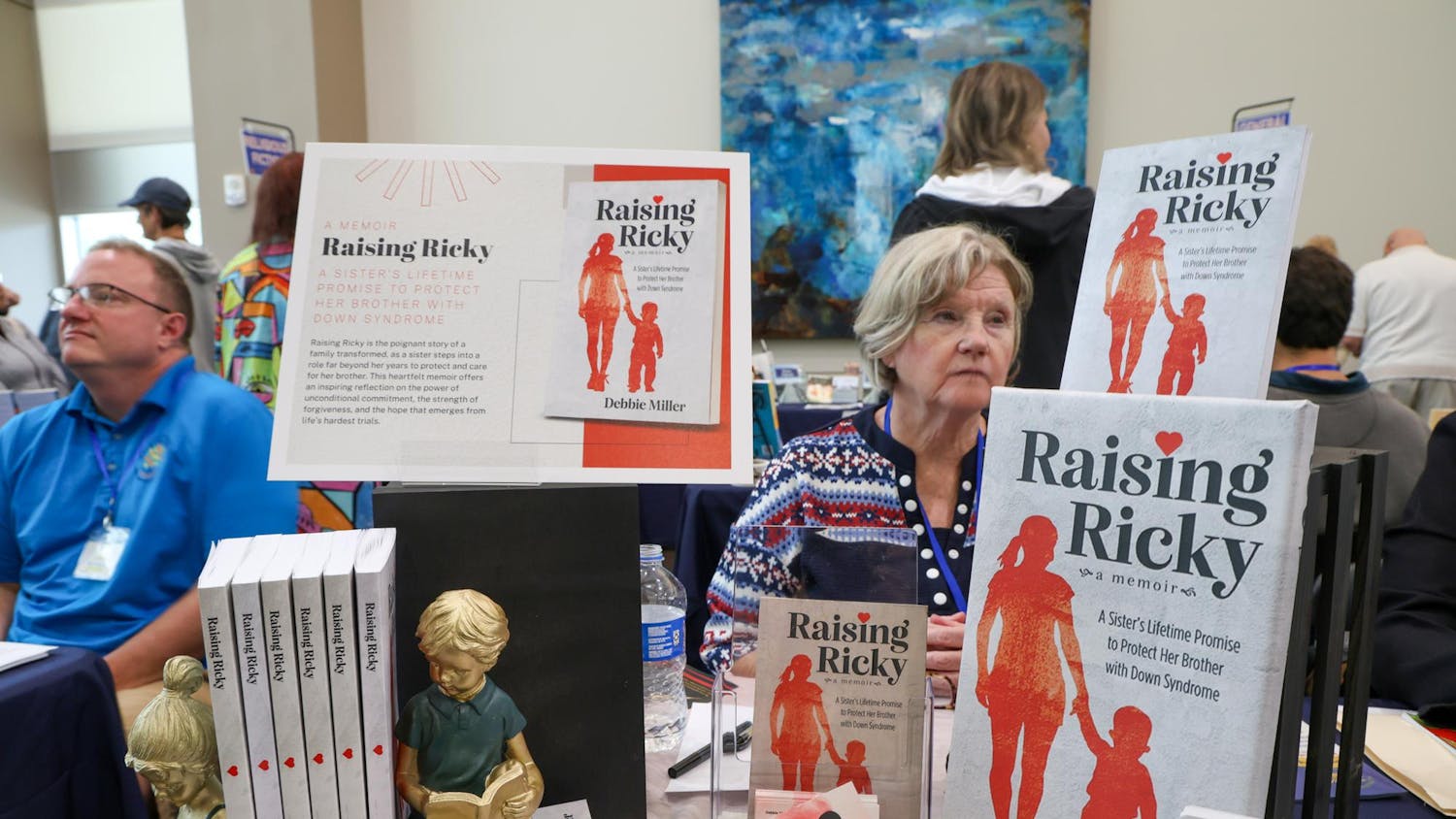UF researchers find method for future meth-addiction therapy
New discoveries made by UF health researchers in neuroscience may help reduce the effects of methamphetamine in the brain.
In a study finished earlier this month, researchers looked at the effects of meth on the firing activity of neurons, said Danielle Sambo, a UF neuroscience graduate student and one of the lead researchers of the study that started about a year ago. The study found a targeted method to use in the future for addiction therapy, she said.
Overall, the goal of the study was to identify specific parts of the brain that can be targeted to decrease the effects of meth.
“There’s been a lot of research done on cocaine and how cocaine affects the dopamine system, but a lot less is understood about meth,” Sambo said. “That’s why, as a lab, we’ve taken more interest in understanding how meth works because there’s still a lot that’s unknown about it.”
The study looked at two primary methods to see how meth causes the brain to release dopamine, a chemical released during pleasurable behaviors, Sambo said. Neurons normally release dopamine through the first method, which is called increased vesicular release, in which pockets of dopamine get released.
Through the second method, reverse transport, meth also releases dopamine through a protein, Sambo said.
After giving test mice dopamine neurons and studying their brain recordings, researchers were able to find that the second method might be more important when understanding how meth increases dopamine release, Sambo said.
- Gabby Rodriguez
UF researchers earn nearly $2 million grant to study patients with tremors
Two UF researchers received a grant of nearly $2 million to study a degenerative brain disorder.
UF neurosurgery professor Dr. Kelly Foote and professor Aysegul Gunduz received the $1.986 million grant from the National Institutes of Health to conduct a five-year study to look at essential tremor, an incurable degenerative brain disorder that results in increasingly debilitating tremors.
Foote and Gunduz, along with UF neurology professor Dr. Michael Okun, started collaborating in 2012. Foote, Gunduz and Okun are working with Medtronic, a company that makes medical devices, to develop deep brain stimulators that record brain activity in patients with tremors.
Their goal is to be able to understand the brain signals enough to pinpoint movement intentions that would then allow people who can’t move their bodies due to injury or disease to be able to control a computer with their thoughts, Gunduz said.
“By comparing their brain signals when they’re not tremoring versus when they are tremoring, we can basically pinpoint what the pathological activity is,” she said.
The “closed-loop system” in the brain is similar to an automatic air-conditioning system, she said. The same way air-conditioning systems turn air on or off depending on the temperature, the stimulator will turn on and off to bring the brain to a healthy state.
The three researchers plan to recruit patients who experience tremors when they start moving, specifically when they’re trying to reach for something.
Gunduz said she, along with Foote and Okun, hope to apply what they learn from the study to other movement disorders, neuropsychiatric disorders and possible neuroprosthetic applications.
- Christy Pina
Irrigation app helps Florida avocado growers save water
Farmers can now use an app to make sure their avocados get just enough water.
UF’s Institute of Food and Agricultural Sciences developed the app, called SmartIrrigation Avocado, which could save farmers between 20 percent and 50 percent on water to irrigate their crops, according to a recent UF/IFAS study.
The app helps farmers know when they need to water their avocados through a 15-day schedule that shows weather averages from the previous five days, said Kati Migliaccio, a UF professor of agriculture and biological engineering and the lead author of the study.
Migliaccio said the researchers don’t have concrete numbers about how much money and water the app saves because farmers used different amounts before the app.
The app, funded by the Florida Department of Agriculture and Consumer Services, focuses on farmers in the Miami-Dade area, where most of Florida’s avocados are grown. Avocados account for much of the state’s agricultural economy, Migliaccio said, with a crop production of $23.5 million in 2013.
“The goal was to link people who make irrigation decisions with data and some simple calculations to make them in a better way,” she said.
- Olivia Ooten
Researchers find wrong information on Spanish health websites
A recent study has found that Spanish websites lack accurate information about losing weight.
The study was conducted from February 2016 to July 2016 by researchers in the UF College of Medicine’s Department of Health Outcomes and Policy.
In the study, researchers compared information on websites with more reliable sources such as hospital and university websites. Websites were scored from “excellent” to “nothing” in terms of accuracy, said Michelle Cardel, a professor in the department.
Researchers wanted to evaluate the quality of information, using search engines to find and assess Spanish websites about weight loss.
Cardel said few reputable websites were in the first five entries of the Spanish-language searches.
François Modave, a UF professor of health outcomes and policy, said he and colleagues at Texas Tech University Health Sciences Center El Paso conducted the same study in 2014 regarding English websites and found more accurate results on the sites.
“The key message for the study is for Spanish speakers to get information from reputable sources,” he said.
Cardel and Modave are planning on creating an informatics tool to identify the quality of information on sites about weight loss.
- Rosanne Ramraj






